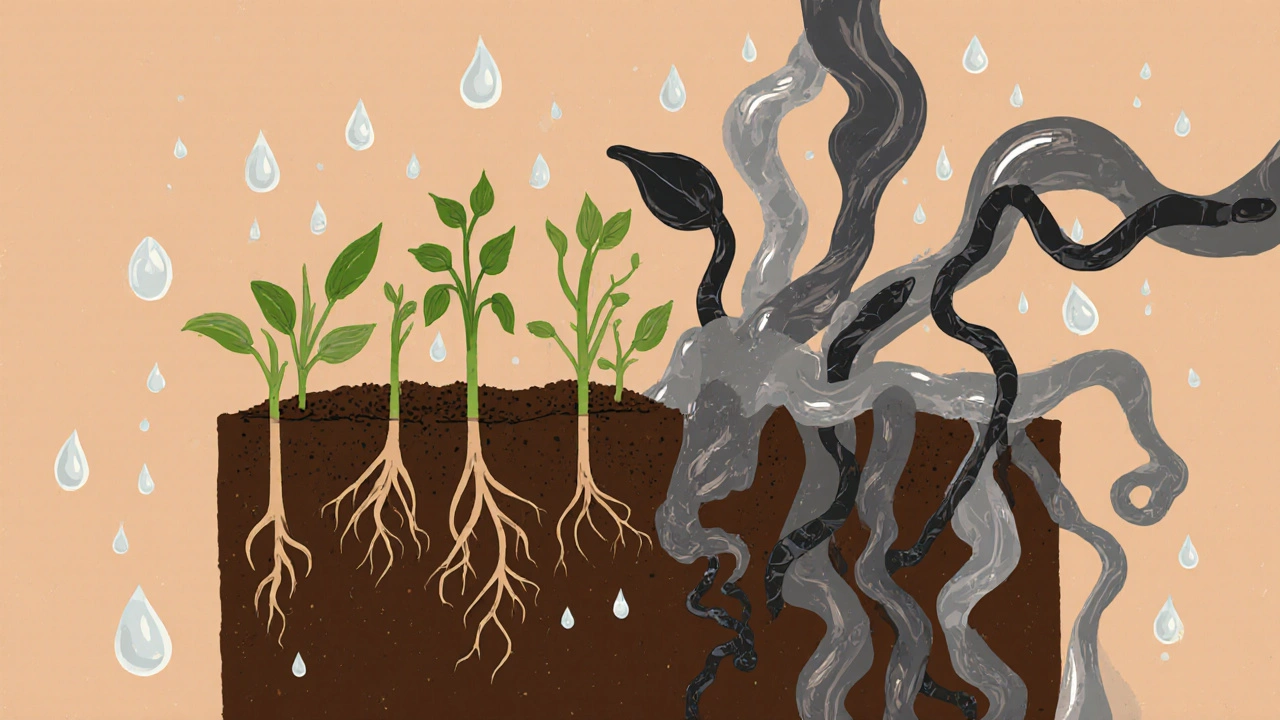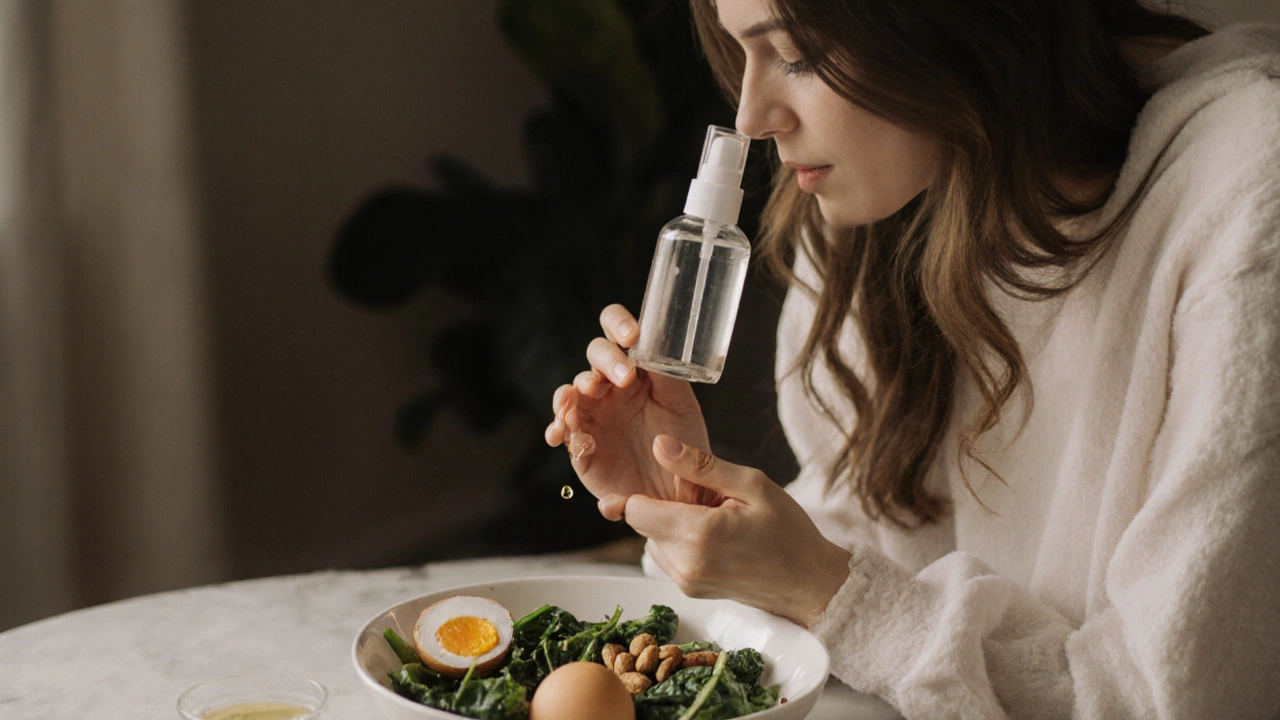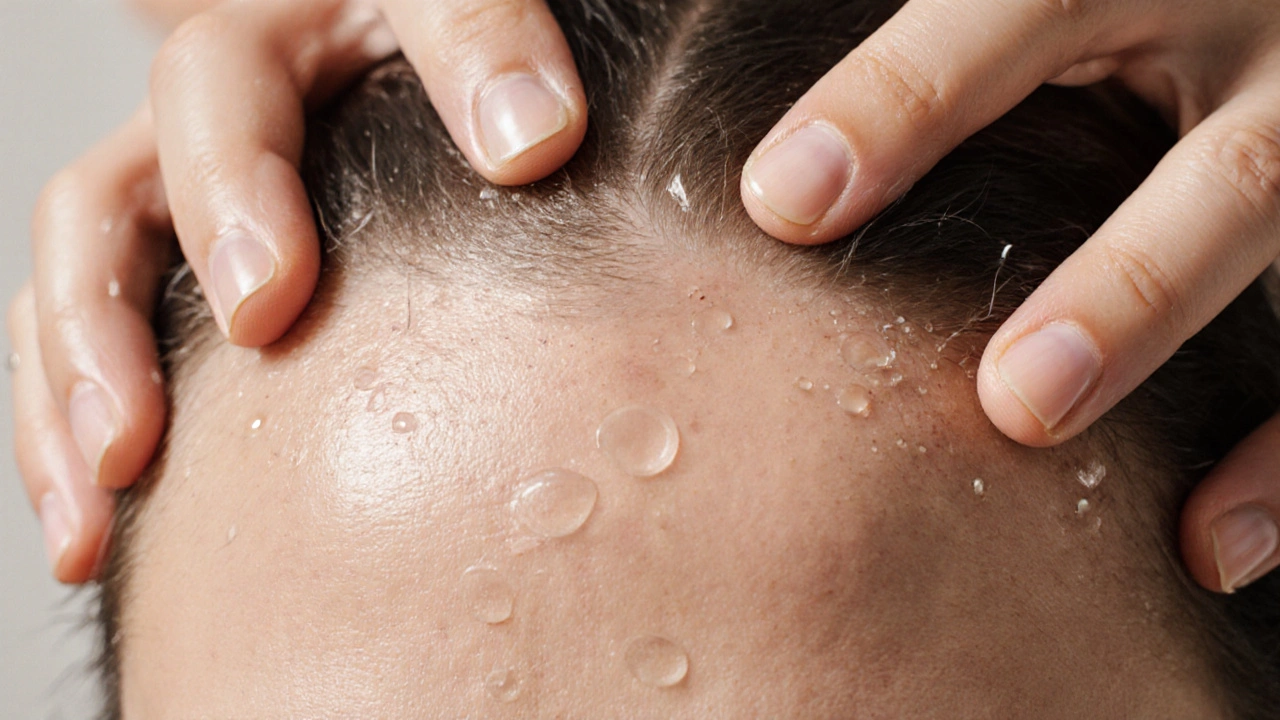Hair Wash Frequency Calculator
Find Your Perfect Washing Schedule
Based on scientific evidence from the article: "Clean, healthy scalp is the foundation of healthy hair."
Your Optimal Washing Schedule
Based on article guidelines: "Wash every 2–3 days, not every day. Let your scalp reset."
Why this matters:
The article states: "Most people wash their hair every day, scrubbing with sulfates, then slathering on conditioners full of silicones that build up like plastic wrap. That’s not care. That’s suffocation."
There’s no magic potion, no $200 serum, no viral TikTok hack that beats the one thing your hair actually needs: clean, healthy scalp. Everything else - oils, serums, masks, expensive shampoos - is just decoration if your scalp isn’t thriving. Your hair doesn’t grow from the ends. It grows from follicles buried under your skin. And those follicles don’t care about argan oil or keratin treatments. They care about blood flow, moisture balance, and freedom from irritation.
Your scalp is the foundation, not the afterthought
Think of your scalp like soil. You wouldn’t plant seeds in compacted, chemical-soaked dirt and expect a garden. Yet most people treat their scalp like a surface to be covered with product, not a living ecosystem. The average person washes their hair every day, scrubbing with sulfates, then slathering on conditioners full of silicones that build up like plastic wrap. That’s not care. That’s suffocation.
Healthy scalp means:
- No flaking that isn’t normal dryness
- No persistent itching or redness
- No tightness or burning after washing
- No visible clogged pores or whiteheads
If any of those are true for you, your hair isn’t failing - your scalp is under stress. And stress shows up as thinning, breakage, or slow growth. Not because you’re not using enough product. Because you’re using the wrong ones.
The one thing you’re probably missing: gentle cleansing
Most hair problems start with harsh cleansers. Sodium lauryl sulfate (SLS) and sodium laureth sulfate (SLES) strip away natural oils faster than your scalp can replace them. That triggers a cycle: dry scalp → overproduction of oil → greasy roots → wash again. Rinse and repeat. It’s like turning up the heat when your house is too cold - you’re making the problem worse.
Switch to a sulfate-free cleanser with simple ingredients: water, coconut-derived surfactants (like cocamidopropyl betaine), aloe vera, and maybe tea tree oil. That’s it. No fragrance, no parabens, no dimethicone. You don’t need 20 ingredients to clean your scalp. You need the right five.
Wash every 2-3 days, not every day. Let your scalp reset. After a week, you’ll notice less oil buildup, less itching, and your hair will feel lighter - not because it’s cleaner, but because it’s no longer coated in residue.
Hydration isn’t about oil - it’s about water
Everyone says "use coconut oil" or "apply olive oil" to your hair. But oil doesn’t hydrate. It seals. And if your hair is already dry and brittle, slathering oil on top just traps in the damage. Water hydrates. Oil protects.
The real fix? Apply a water-based leave-in conditioner or hair mist to damp hair after washing. Look for ingredients like glycerin, panthenol, or hyaluronic acid. These draw moisture into the hair shaft. Then, if you want, seal it with a tiny drop of jojoba oil - which mimics your scalp’s natural sebum - on the ends only.
Most people apply oil to the roots. That’s why their hair looks greasy by noon. Apply moisture to the mid-lengths and ends. Seal with a pea-sized amount of oil only where hair is frayed or split. Less is more.

Scalp massage: the overlooked powerhouse
Studies show that daily scalp massage for just 4 minutes can increase hair thickness over time. One 2016 study published in Evidenced-Based Complementary and Alternative Medicine found participants who massaged their scalps for 4 minutes a day for 24 weeks saw a significant increase in hair density. Not because of the oil they used. Because of the increased blood flow.
Use your fingertips. Not your nails. Gently press and move in small circles across your entire scalp. No tools needed. No expensive devices. Just your hands. Do it while your hair is still damp after washing. It takes 20 seconds. It’s free. And it works better than any expensive laser comb.
Diet matters more than your shampoo
You can wash your hair with the purest ingredients in the world, but if you’re not eating enough protein, iron, or zinc, your hair will still thin. Hair is made of keratin - a protein. If you’re not getting enough protein daily, your body doesn’t send it to your hair. It sends it to your organs first.
Key nutrients for hair health:
- Protein: Eggs, chicken, lentils, tofu - aim for 0.8g per kg of body weight daily
- Iron: Spinach, red meat, pumpkin seeds - low iron is a top cause of hair loss in women
- Zinc: Oysters, chickpeas, cashews - helps with follicle repair
- Vitamin D: Sunlight, fatty fish, fortified foods - deficiency linked to telogen effluvium (shedding)
- Biotin: Nuts, sweet potatoes, eggs - supports keratin production
Supplements won’t fix a bad diet. If you’re eating processed food, sugar, and not enough veggies, no pill will save your hair. Real food first. Always.

Stress is your hair’s worst enemy
When you’re under chronic stress, your body goes into survival mode. Hair growth stops. Follicles go dormant. That’s why people lose hair after major life events - divorce, job loss, illness. It’s not the event itself. It’s the cortisol spike.
One study from the Journal of the American Academy of Dermatology found that people with chronic stress had 30% more hair shedding than those with low stress levels. And it’s not just emotional stress. Lack of sleep, constant noise, poor air quality - they all add up.
Fixing your hair means fixing your nervous system. Get 7 hours of sleep. Walk outside for 20 minutes a day. Breathe deeply for 2 minutes when you feel overwhelmed. These aren’t "self-care" trends. They’re biological necessities for healthy hair.
What not to do
Here’s what kills hair faster than anything else:
- Heat styling every day - flat irons, curling wands, blow dryers on high heat
- Chemical treatments - bleach, relaxers, permanent color - especially if done too often
- Tight hairstyles - ponytails, braids, buns that pull on the hairline
- Brushing wet hair - it’s weakest when wet. Use a wide-tooth comb instead
- Wearing hats or headbands all day - traps sweat and bacteria
None of these are "bad" if used occasionally. But if you’re doing them daily, you’re not caring for your hair. You’re wearing it down.
The real answer: consistency over products
The most healthiest thing for your hair isn’t a brand. It’s not a trend. It’s not even a single ingredient. It’s consistency in the basics:
- Clean your scalp gently, 2-3 times a week
- Hydrate with water-based products, seal with minimal oil
- Massage your scalp daily
- Eat real food with enough protein and minerals
- Reduce stress and sleep well
- Avoid heat, chemicals, and tight styles
Do this for 90 days. Not 30. Not 14. 90. That’s how long it takes for new hair to grow and for old damage to be replaced. You won’t see overnight results. But you’ll see real change - thicker strands, less breakage, stronger roots.
Your hair doesn’t need more products. It needs less noise. Less pressure. Less junk. Just the right conditions to grow.
Is coconut oil the best thing for hair?
Coconut oil can help seal moisture and reduce protein loss in hair, but it’s not a cure-all. It works best on dry, porous hair when applied to the ends, not the scalp. If your scalp is oily or prone to dandruff, coconut oil can make it worse. It’s a tool, not a miracle.
How often should I wash my hair?
Most people should wash every 2-3 days. If you have fine hair or live in a humid climate, you might need to wash every other day. If your hair is thick, curly, or dry, once a week may be enough. Listen to your scalp - not the label on your shampoo bottle.
Can I grow hair faster with supplements?
Supplements like biotin or collagen won’t speed up growth if your diet is already balanced. Hair grows about half an inch per month - that’s the natural rate. Supplements only help if you have a documented deficiency. Otherwise, they’re just expensive urine.
Why is my hair falling out more than usual?
Sudden shedding is usually linked to stress, illness, hormonal changes, or nutritional gaps - not your shampoo. If you’re losing more than 100 hairs a day for over 2 weeks, check your iron, vitamin D, and thyroid levels. Hair loss is rarely just a hair problem.
Do I need expensive hair products?
No. Many expensive products are just fancy packaging with the same ingredients as drugstore brands. Look at the ingredient list, not the price tag. If the first three ingredients are water, sodium lauryl sulfate, and fragrance, it’s not worth the cost. Simple, clean formulas work better.
